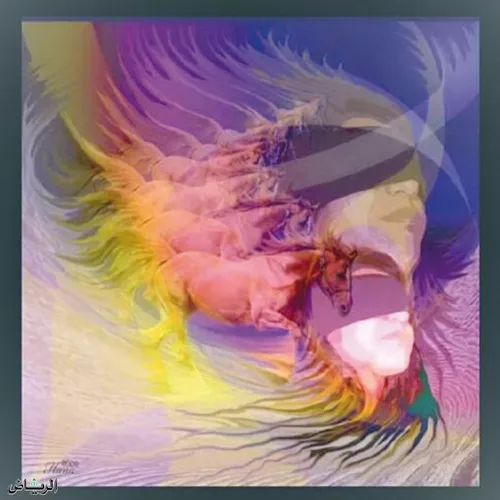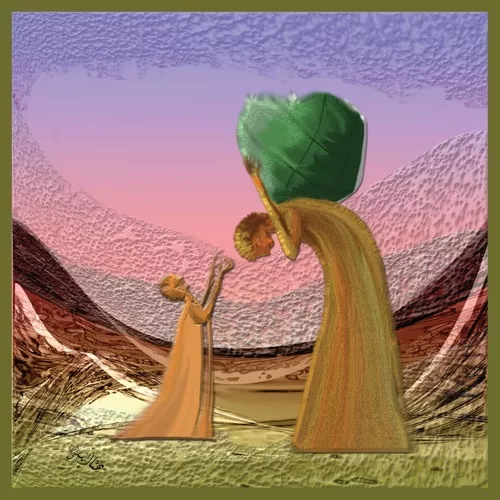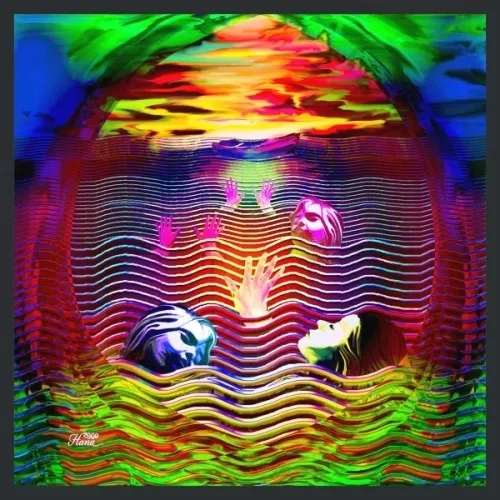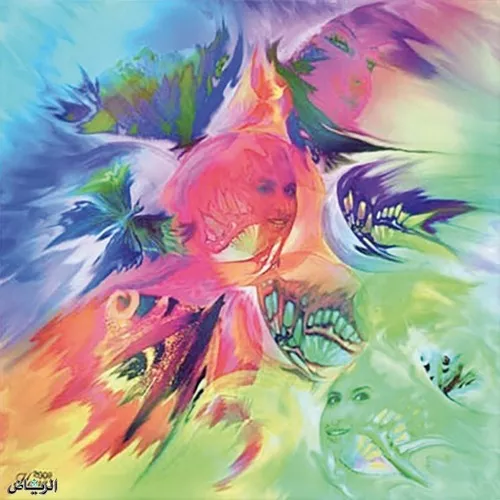Dr.. Hana Rashid Al-Shibli, a Saudi artist and digital designer, who holds a PhD in digital design, and we met her through these lines to talk about her artistic field:
- We welcome our guest, Dr. Hana Al-Shibli, who is creative in the field of plastic arts. Tell us a brief description of yourself:
- May God bless you, with you Dr. Hana bint Rashid Al-Shibli, a plastic artist and digital designer, director of the planning and branches departments of the Saudi Society for Fine Arts (JSFIT), which has 18 branches in the Kingdom. She worked as an educational expert in the Ministry of Education in managing curricula in the field of art education. She retired early and now devotes herself to art and volunteer work.
How did you get started with drawing and how did you get into this field?
- I started in art early because I was born into a family that was considerate of the needs of its children, praise be to God. My father, may God have mercy on him, owned a library rich in books, which gave me an abundant treasure of knowledge and visual images that I satiated with in my childhood. Conscious, she used to give me her experience and knowledge, so she taught me the basics of painting with oil colors, which was early for me to learn at that time, and I learned from her how to establish the surface of the painting, as at that time there were no drawing tools such as a canvas board, and I used to go to her in my spare time in school, and when I was in the third year of high school, she worked for me an exhibition consisting of more than 12 paintings of my personal works in oil colors of landscapes. In the field more, and at that time I attended exhibitions and bought tools for professionals, all of this paved the way for me to enter the Department of Art Education.
What are the difficulties you encountered in the field of digital art?
- I am considered one of the pioneers of digital art, since I started with it since the first release of Photoshop and Color Draw, and I have local and international contributions. When I started working on these programs during the days of supervision when I was an educational supervisor, we had records of achievement, so we were trying to decorate them with primitive drawings, and then I started working in Photoshop and Color Draw and took courses from an institute special for these programs, and then I started searching for printing these paintings on paper other than paper, so I was looking for a material in which I could print my board in order to show it to the world and participate in it, so when I participated in one of my paintings in an exhibition, I was rejected and they took me out of the competition, so I raised a letter asking why my work was removed from the competition, so I discovered That there are no arbitrators and there is no one who knows digital art, and that was in 2006 AD, and they promised me an exhibition, and we actually formed a group of five plastic artists, and this was one of the first difficulties that we overcame, and the Ministry sponsored us the first digital exhibition in the Arab world, although this art began approximately in the year 1950 AD, and this means that the outside world knew it years before us, but it became an art field recognized by the Ministry of Culture and Information at the time. The second difficulty I faced during my doctoral studies was that my major was in digital arts and my thesis was in digital arts strategy. I did not find references at the time, so I went to the field and designed my questionnaires so that it would be the only reference. Thank God I overcame this difficulty.
Is innate talent a basic element of creativity? Or does talent need to be studied, refined and developed?
Talent from God is granted to a person without his choosing, so any talented person needs to practice training and education, and it is not enough to be blessed with this talent sometimes, for example, children with autism have talents for drawing with high capabilities, and sometimes some of the mentally retarded have high physical ability
But talent reaches creativity when we develop it with education and develop it with practice. Here, the artist must have the talent with the hobby to continue, as talent alone is not enough.
Advice for beginners in the field of digital art:
- First: I advise artists who entered the digital field to be original artists, so that they care about the environment. Our environment as Saudis, praise be to God, is geographically diverse. We have decorations in the north and decorations in the south, a cultural legacy that extends for hundreds of years in Najd, the eastern and western regions, so he does not look to other civilizations before studying his civilization, heritage and Saudi history, and be an authentic artist in all its elements and symbols.
Second: To be an artist who is honest with himself, so he does not imitate or attribute anything to himself from others, for the honest artist is the one who succeeds. There is no problem with training for someone else, but do not participate in this work in any exhibition and attribute it to yourself while it is for someone else.
Third: He must be aspiring to digital arts, as the arts in general are evolving and constantly talking and we are in a globalized world, so he must be aspiring and rich in learning and practicing it constantly.
Fourth: You must always document your work in each post, so that you can keep it and return to it when you need it
Attention must also be paid to the form and style, because each artist represents his country.










